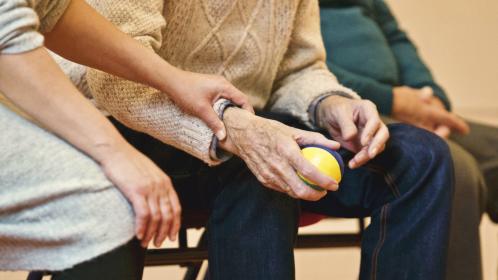This week we continue in the same chapter as last week, as well as the same thought, which is that the cross means more than just personal salvation and it implicates us in a way of living toward others and for others. It leads us to love. From The Crucified God:
It is true that in a world of high consumption, when anything and everything is possible, nothing is so humanizing as love, and a conscious interest in the life of others, particularly in the life of the oppressed. For love leaves us open to wounding and disappointment. It makes us ready to suffer. It leads us out of isolation into a fellowship with others, with people different from ourselves, and this fellowship is always associated with suffering. It changes the world, in so far as it puts life into a static situation and overcomes the death urge which turns everything into a possession or an instrument of power. It is also true that in Jesus’ preaching of the immanence of the kingdom of God’s prevenient grace, and in his life for and with the lepers, the outcasts, the sinners and the tax collectors, such love can be seen personified. Moreover, it is right to follow Jesus at the present time in the specific activities of love, suffering and revolt... This means that to be crucified with Christ is no longer a purely private and spiritualized matter, but develops into a political theology of the following of the crucified Christ.
There are portions of Moltmann’s work (big portions) that feel more like poetry or prose than theology to me, and this is one of them. That first sentence is something worth writing on a sticky note and leaving on your bathroom mirror. In this world of too much and more, nothing is so humanizing as love. Because true love, real love, holy love, is always the kind of love that brings us toward other people. And because it does that, it also draws us toward heartbreak and disappointment and suffering, because that’s what happens when you get close enough to see the beauty and the scars of those around you. You get implicated.
I was fortunate enough to spend a good bit of time in museums over spring break, and I was struck again and again by the power of art to draw its viewer toward compassion, toward confusion, toward connection. Toward, above all, implication. We humans share this planet and share this experience of having one wild and precious life to fill. We have seen war and resistance to war. We have seen peace and resistance to peace. We have seen hatred and fear, and we have seen the triumph of love. Something about art invokes us toward a conscious interest in others because it invites- maybe even dares- us to look upon them, to consider them. That in itself is the seed of love, that willingness to look. It moves us toward love, even without our knowing it.
Moltmann says that Jesus shows us the humanizing power of love in the way he looked upon sinners and outcasts and tax collectors. This is the love that changes the world. It always has been, and it always will be.
I’ll leave you with Moltmann’s three-pronged description of following Jesus, which includes the activities of love, suffering and revolt. Those three words hardly ever show up as a package deal, but here they are. Because love may begin with gaze, with attention, but it ends with action, even revolt. Love demands our participation. The love of Christ, a love manifest on a cross, demands we consider the kind of love that dares to get political, which is to say, that dares to wade into the weeds of what fighting for a person’s everyday dignity might mean. It might mean suffering. It may even mean revolt. But it is always done as a vehicle- as an outbreath- of love.
Where might you see the need for love, suffering, and revolt this week? Where do you see, or need to see, the humanizing love of God?

Add Your Voice!